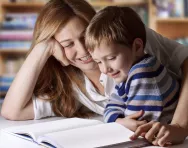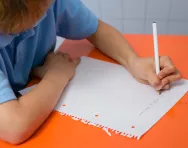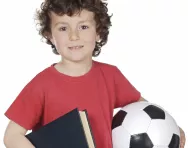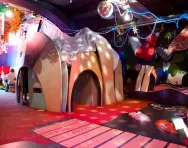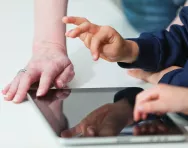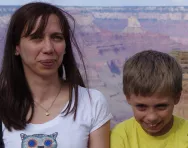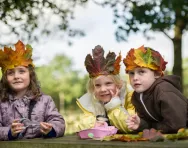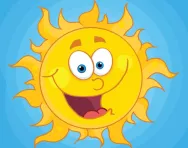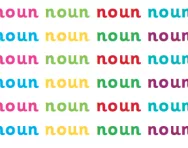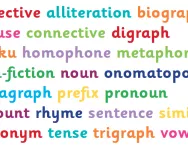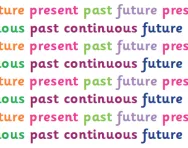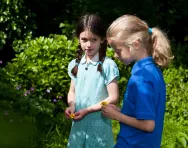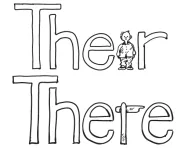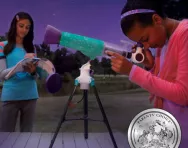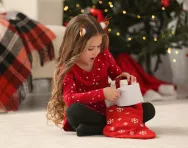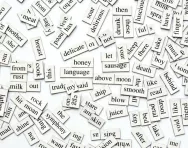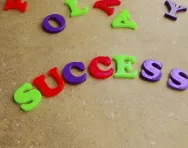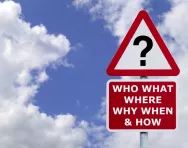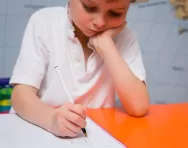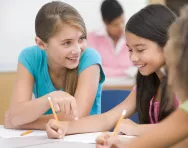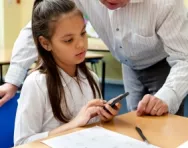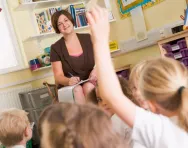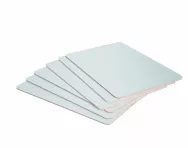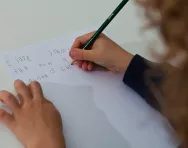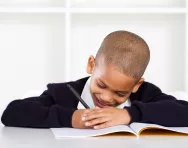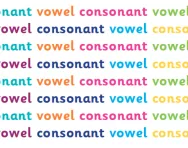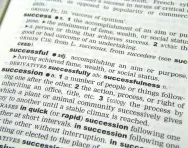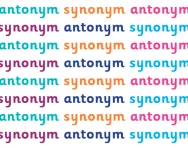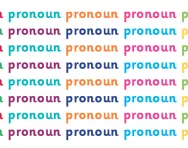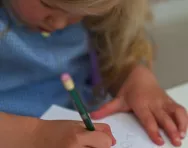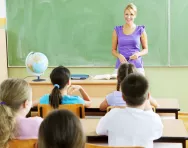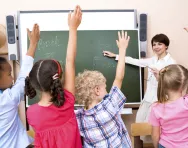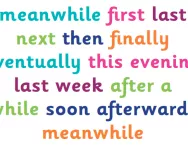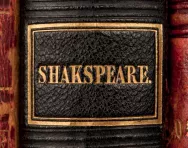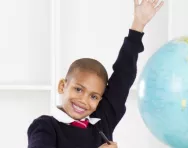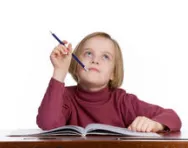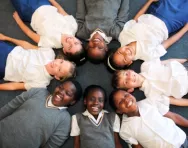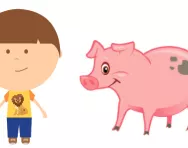Year 4 English articles
4 ways to bring poetry to life for your child
With poetry on the new national curriculum for children as young as five, poet Adisa the Verbaliser explains how to make poetry magical for your child.
5 ways to turn your child into a budding writer
While some children love nothing more than sitting down with a blank sheet of paper and a pen, others are filled with dread at the thought of writing much more than their name at the top of their worksheet. Teacher and author Alison Wilcox shares her tips for encouraging the writing bug.
Best kids' books about football
Would your child rather be kicking a ball than picking up a book? Get them excited about reading with fiction and non-fiction titles about the beautiful game, from World Cup histories and step-by-step technique manuals to brilliant football fiction for all ages.
Museums reviewed by parents: Discover Children's Story Centre
Bring learning to life with a visit to one of our parent-recommended museums. We love Children's Story Centre Discover, a haven for bookworms, story-tellers and adventurers in Stratford, north east London.
Why games-based learning is great for your child
If you despair of the amount of time your child spends attached to their tablet, think again: games and apps are an important part of their learning journey, from pre-school to secondary school, and can help to improve problem-solving skills and communication, as well as boost motivation. Lucy Dimbylow finds out why gaming means learning in the twenty-first century.
'He struggled to form his letters correctly and his handwriting was illegible'
Cécile Watson, from Bromley in Kent, describes her experience of the SEN and school system with her son Jean-Pierre, 11, who has dysgraphia, and shares her tips for other parents.
11 easy tips to make Shakespeare fun for kids
You don't have to be a theatre buff or a classic-literature lover to appreciate Shakespeare's wonderful stories, compelling characters and beautiful language. We say it's never too early to introduce children to the Bard, so here are 11 great ways to help under-12s fall in love with his verses.
What are exception words?
As your child learns to read you might hear them talk about the 'exception words' they are learning. We explain what exception words are, what role they play in phonics learning and how you can support your child's developing reading and spelling skills at home.
What is figurative language?
Figurative language uses words and ideas to suggest meaning and create mental images. We explain how children are taught to recognise and use figurative language in KS2 English, with definitions and examples of simile, metaphor, personification, hyperbole and onomatopoeia.
What is journalistic writing?
Hold the front page! Primary-school children study the features of news reports (headlines, pictures, captions, quotations) and often learn to write their own article, usually related to a theme they are studying. Here's how you can support their learning at home.
What is a noun?
Get common nouns and concrete nouns clear in your mind and understand proper nouns and pronouns - our simple guide explains everything primary-school parents need to know about nouns and how to form the plural forms correctly.
Primary literacy glossary for parents
From adjectives to writing frames, TheSchoolRun's primary-school literacy glossary offers a complete guide to all the concepts children are taught in EYFS, KS1 and KS2 English. Brush up on your own literacy skills, clear up homework confusion and understand exactly what your child is learning at school by reading our basic definitions (with links to more detailed explanations, teachers' tips and examples).
What is verb tense?
Verb tenses tell us when an action took place in the present, past or future. Help your child understand the main verb tenses (simple present and present continuous, simple past and past continuous, simple future and future continuous) and understand which tenses are used in different kinds of texts.
The parents’ guide to developmental language disorder
A significant percentage of children are thought to be affected by DLD, but it often goes unrecognised. We look at how to spot the signs and help your child.
Memory aids for kids
Rhymes, acrostics and other mnemonics could all help your child to remember important facts, from tricky spellings to grammar rules. We asked the experts why they work so well – and for their top 10 memory aids.
100 of the best educational toys: KS2
Your child will be having so much fun playing these games they won't even realise they're practising their times tables, improving their vocabulary, boosting mental maths skills and revising geography facts. Hands-on fun is guaranteed with every learning activity, from writing in hieroglyphics to dissecting a body and observing the night sky.
100 of the best educational toys: stocking fillers
Don't forget the stockings! These little toys and games are the perfect size to slip in, yet still offer plenty of educational opportunity. Encourage observation, curiosity, dexterity and creativity with these brilliant gifts, whatever age your child is.
13 ways to make grammar fun for children
With all Year 6 children required to take a spelling, punctuation and grammar test and more emphasis on the technical side of English in the primary curriculum, we asked the experts for their top tips and practical activities to help your child engage with – and enjoy – grammar.
What is a success criteria / WILF?
Find out what success criteria (also known as the 'WILF') are and how your child's teacher will use success criteria to boost learning focus.
What is a Learning Objective / WALT?
Heard your child talk about their LO, or their WALT? Teachers use learning objectives to help children understand what is expected of them in the classroom. Find out what a learning objective (or WALT) is and how learning objectives are used in primary school.
What is a DUMTUM?
Find out what a DUMTUM is and how this technique will help your child to set out their work correctly.
What are talk partners?
Find out what a talk partner is and why having a talk partner will benefit your child's learning in the classroom.
What is 'scaffolding' learning?
Find out what 'scaffolding' learning means and how teachers use this technique in the classroom to help children master different skills.
What are interactive whiteboards?
Find out what interactive whiteboards are and how they enhance learning in the classroom.
What are mini-whiteboards?
Find out what mini-whiteboards are and how they enhance learning in the classroom.
What is text-marking?
Text-marking is a technique taught in schools to help children recognise the different features of a text. Find out how teachers explain the technique to children and how it can help with their comprehension of different types of texts.
What is Look, Cover, Write, Check?
Look, Cover, Check, Write is a strategy your child will be taught in schools to help them learn spellings. Find out how the technique is taught in the classroom so you can reinforce learning at home in the same way.
What are vowels and consonants?
We explain what vowels and consonants are and how primary-school children are taught to identify CVC, CCVC and CVCC words, vowel digraphs and consonant digraphs.
What is a root word?
We explain what a root word is and how prefixes and suffixes can be added to root words to turn them into words with different meanings.
What are synonyms and antonyms?
We explain what synonyms and antonyms are and how children are taught to use synonyms to improve their writing in primary school.
What is a pronoun?
We explain what a pronoun is and how primary-school children are taught to use pronouns to avoid repetition in their written work.
What is extended writing?
At school your child will be expected to produce pieces of extended writing, which is a writing task completed independently. Find out how teachers will help your child develop this skill and how you can support their learning at home.
What is modelled writing?
Modelled writing is a technique teachers use to model for children how they could carry out the thinking process when writing a story. See an example of how this process could work.
What is shared writing?
Shared writing is a collaborative technique teachers use to help children develop ways to improve their writing. See an example of shared writing at work and an explanation of how it gives children a model of what they are expected to write.
What are time connectives?
Find out how your child's teacher will explain the concept of time connectives and ways in which your child will be encouraged to use them to improve their writing.
What are biography and autobiography?
In Key Stage 2 your child will learn about biographical and autobiographical texts. Find out about the features of these texts and help your child write their own texts at home.
What is an explanation text?
An explanation text is a specific type of writing and includes some identifiable features. Find out how your child's teacher will teach explanation texts and what your child needs to include in their own explanation texts.
What is a non-chronological report?
A non-chronological report is a piece of text that isn't written in time order. Find out how your child is taught to read and write non-chronological reports in primary school.
What is brainstorming?
Children learn how to brainstorm in school to generate ideas and solve problems. Find out how teachers encourage children to develop this skill and how it can help improve your child's written work.
What is a metaphor?
A metaphor is a figure of speech where two things that are normally unrelated are compared to each other. Find out how teachers explain metaphors to school children and how to encourage your child to spot metaphors and use them to improve their writing.
